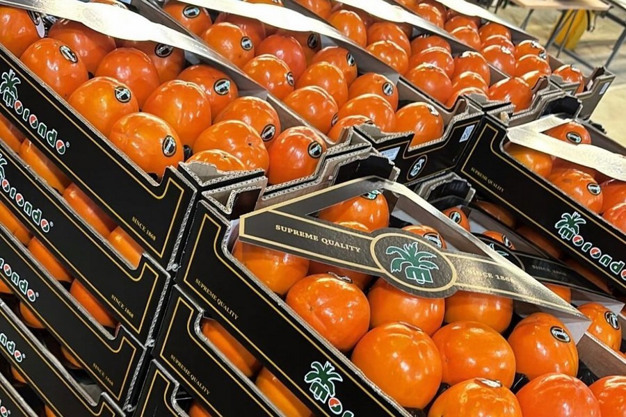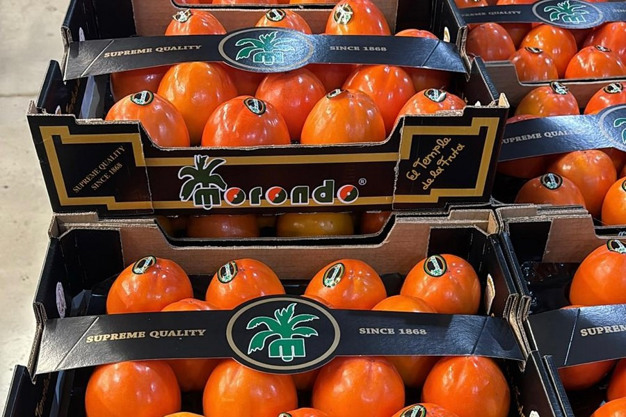The heavy storm that hit eastern Spain on October 29 has caused huge economic losses in the province of Valencia, with the kaki campaign as the worst affected by this extraordinarily destructive meteorological episode.
"Unfortunately, the area of La Ribera, which accounts for most of the kaki production in the Valencian Community, has been the worst affected, with losses ranging from 60 to 80%, and this has been reflected in kaki prices throughout the month of November. However, it must also be taken into account that the storm has not only caused a drop in the production, but has also generated extra costs in the harvesting and sorting, because the fruit needs to undergo a stricter selection process," says Fernando Martí, from the Valencian company Morondo.

"Because of this, market prices haven't fallen in November, as they usually do every season, and kaki prices are expected to rise during the last two weeks of December," he says.
"In our case, as kaki specialists, we have production spread out over several locations in the Valencian Community, so for us, the impact of the storm has been more limited and we can guarantee that we will have Rojo Brillante kakis available for our clients throughout December and January. Nonetheless, there has been such a significant drop in the production that most operators expect the season to finish earlier than in other years."
"In fact, given the very good demand in November, and knowing that some exporters will probably finish the season in mid-December due to a lack of product, there will still be peaks in the demand in the coming weeks," says Martí.

Data shared by the authorities reveals the exceptional intensity of the storms that hit the province of Valencia. In fact, the weather station near the town of Turís recorded 185 mm of rain in just one hour, tripling the 60 mm that is already defined as torrential rainfall by Spain's state meteorological agency. In six hours, the figure reached 621 mm.
"It should be noted that this season's fruit has been the most affected," says Fernando Martí. "It is true that trees have been destroyed in some farms, but those are the exception, so we think it is important to communicate to the market that the damage is mostly affecting this season's production in a very specific area, and that next season we should go back to normal, unless anything exceptional happens."
"For the time being, despite the unfortunate nature of the storm, at Morondo we will continue working with kakis, our main product. We have been promoting its consumption for years, bringing Valencian kakis to consumers in Europe and also overseas, and we want them to be sure that we'll still have fruit available until the end of January."

For more information:
Morondo
Sector Industrial I-1 PM 2-3
46814 La Granja de la Costera, Valencia. Spain
[email protected]
